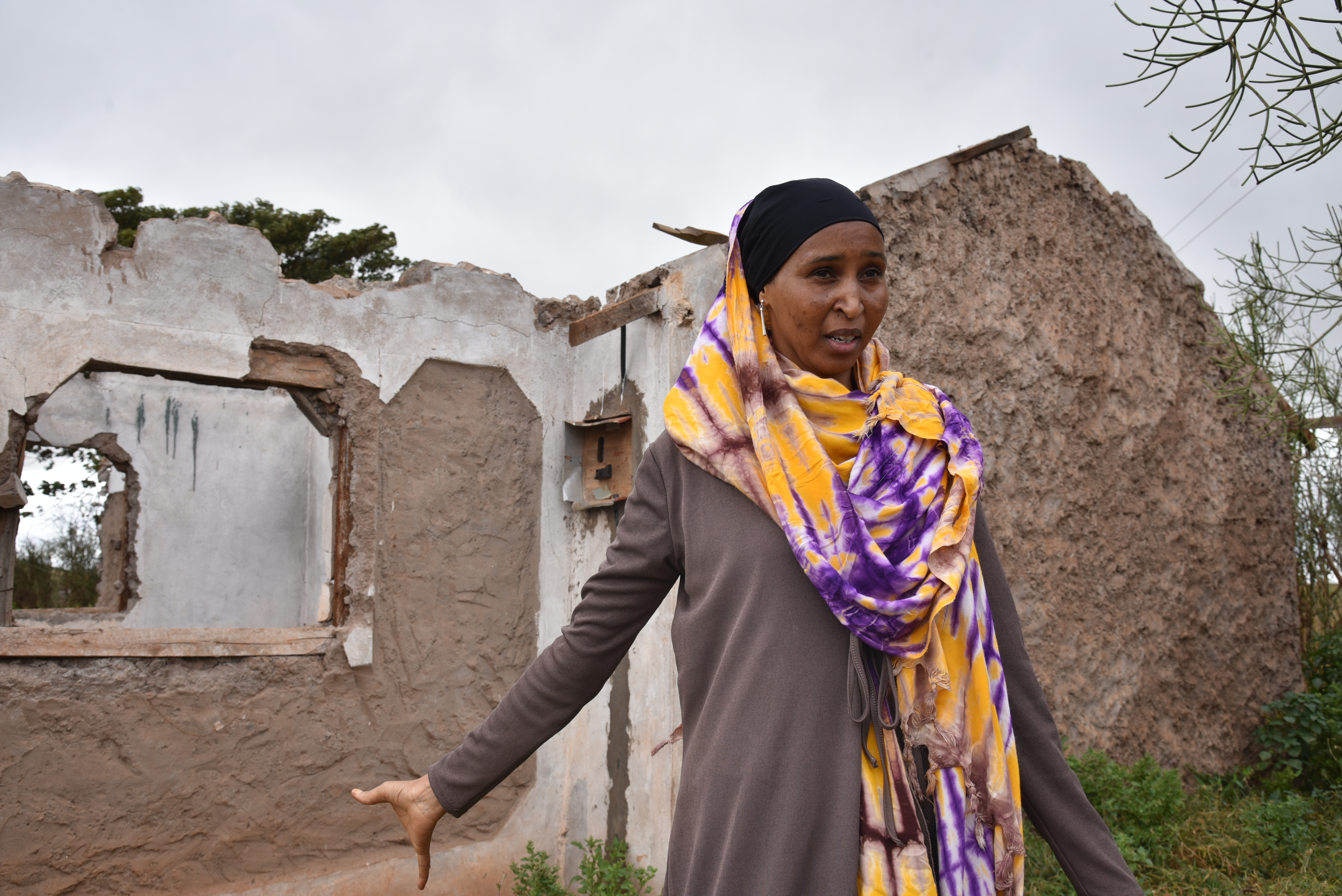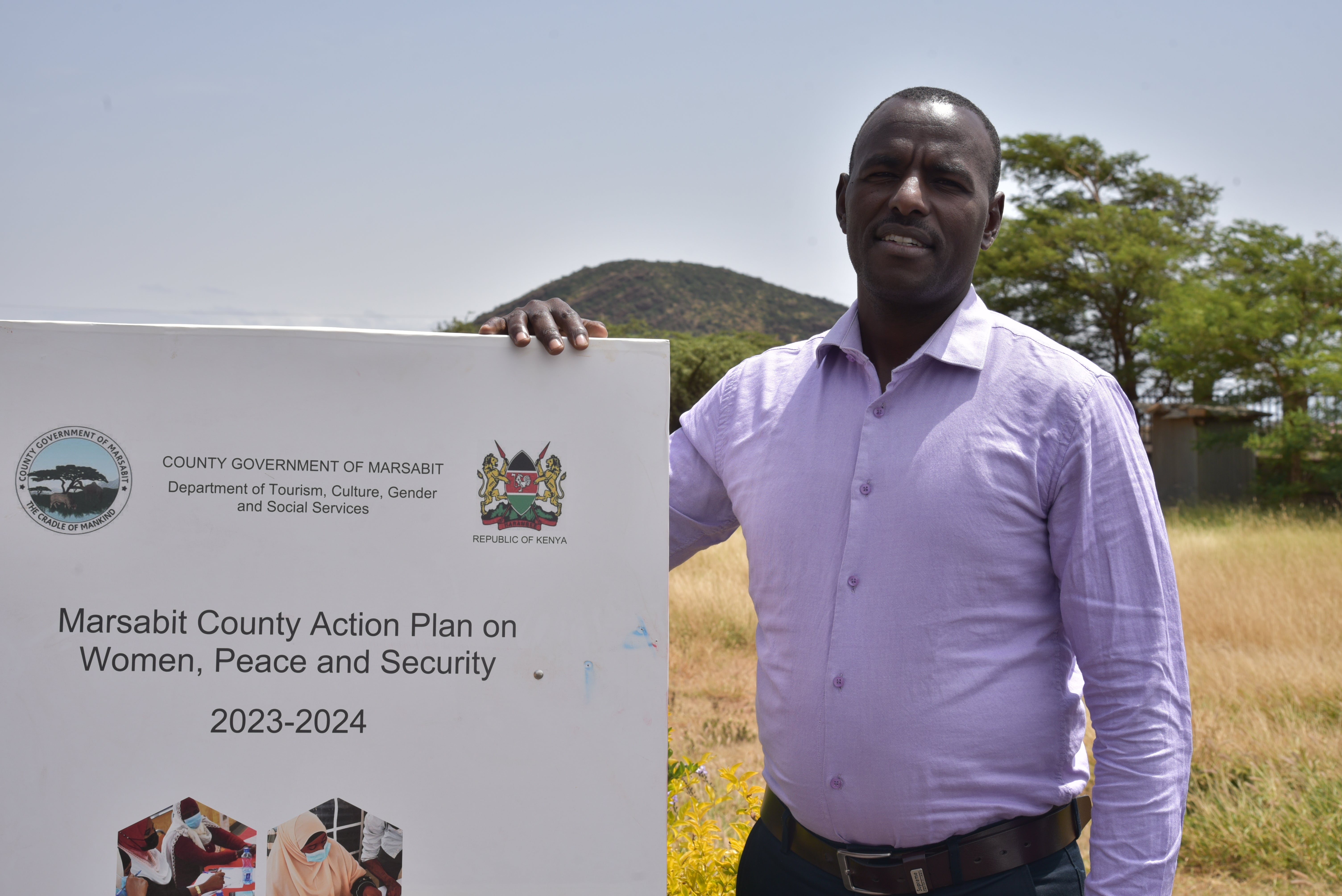Cooling Northern Kenya’s conflict hotspots
Date:
For decades, ethnic tensions over resource scarcity, political power struggles and land disputes have led to cyclical clashes between communities in Northern Kenya. This year however, Marsabit County has enjoyed relative peace, in part due to women's influence through policy and sustained community dialogue.

Just outside Marsabit Town, two neighbouring villages are separated by the highway that leads to Ethiopia. “The villages have never seen eye to eye,” explains Nuria Gollo, a peacebuilder at the forefront of local conflict security efforts. “At its worst, they would kill each other in broad daylight.”
Jeremy Ledaany is County Executive Committee Member (CECM) for gender equality issues in Marsabit. He explains that, “the county has numerous drivers of conflict and has faced enormous challenges because of the recent drought – which has wiped out 80% of our livestock and many families’ livelihoods. A lot of homes were burnt down in the last year and there is is now many internally displaced persons (IDPs).”
Policy, petitions and participation
As violence intensified towards the end of 2022, women in Marsabit began mobilising their communities and pushing decision makers. "Women's participation in local peacebuilding has been crucial. Their inclusion in policy making also added momentum for them to participate and engage on the ground," Ledaany continues. With local government buy-in and UN Women support, a group of 32 women leaders submitted a petition to the County Governor to integrate the women, peace and security (WPS) agenda into the county's upcoming budget cycle. Following the petition, women leaders also provided important inputs into developing the Marsabit County Action Plan – a localized version of the Kenya's national framework on WPS.

To back-up the policy and petitioning, the peacebuilders took to the streets to directly engage with their communities. Nuria is one of 100 women leaders in Marsabit who have received training on the WPS agenda and conflict resolution, through UN Women’s partnership with the Government of Finland. "Since the start of this year we have been very active in the community,” Nuria confirms. “We have sat with both parties separately, and we came together as a group including the village elders, religious leaders and government officials. We began by giving condolences, but we stressed revenge killings cannot continue and will not solve the issues.”
Continuous and inclusive dialogue is the approach that all stakeholders in the region's conlflicts are taking. While this happens, Nuria and her peers are now actively sharing their expertise with other women in the community, and have established a local network called the Marsabit Women’s Mediation Network (MWMN) – a group of 60 women, representing all the county’s 14 different communities.
One of the MWMN members, Sori Wario, was a victim of previous clashes and was forced to move from her home. Now she explains, “we have peace now. We can move freely to the other village. We talk, we participate in weddings together, we go to church together, there are no problems now.” As more grassroots women become involved in their community peace and security processes, pockets of intense of inter-ethnic violence will continue to be resolved and peace will proliferate.
With support from the Government of Finland, UN Women has supported grassroots organisations engage with their community’s peace and security processes in Marsabit, Kitui, Kwale and Turkana. All counties now have their own localised action plan to pursue the WPS agenda. The partnership has provided sustained engagement, advocacy and capacity building with Kenya’s peace and security stakeholders and has contributed to a significant jump in the proportion of women participating in local peace committees between 2019 (29%) and 2023 (34%).